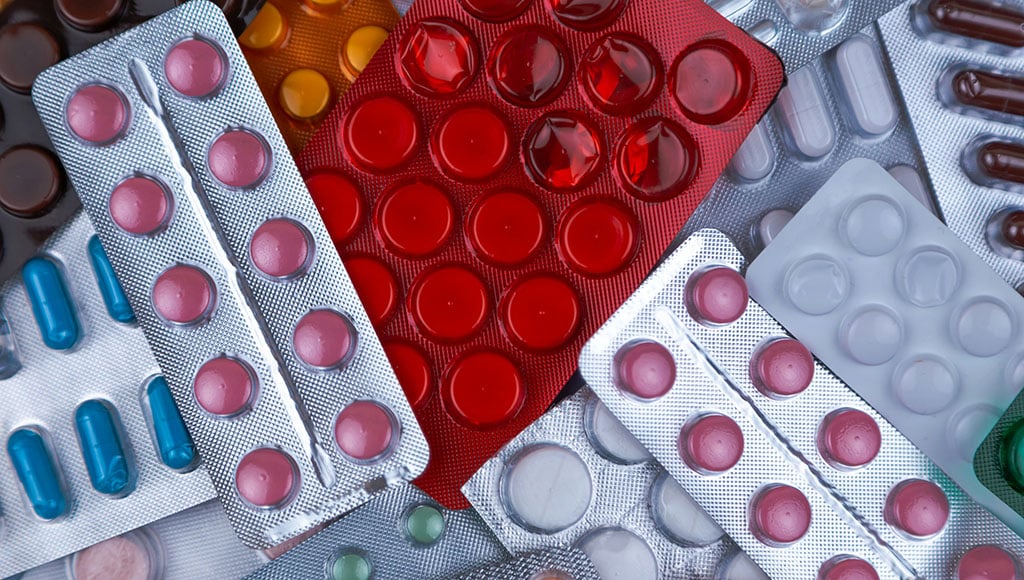I need to begin by saying I am not a doctor. I am not giving you medical advice. The information I provide is for educational purposes only.
Statins are the number one bestseller in the treatment of high cholesterol levels and also the most profitable drugs in the history of medicine. But what is cholesterol and how high or low should levels be?
Cholesterol is a fat made by your liver according to your body’s demands. So, if your body needs cholesterol, your liver will make it; if it doesn’t need cholesterol, it won’t make it. Eighty percent of the cholesterol your liver makes is made from glucose and 20% is made from fat. There are two types of cholesterol – HDL: High-Density Lipoprotein and LDL: Low-Density Lipoprotein.
We call HDL good cholesterol because it carries excess cholesterol back to your liver and we call LDL bad cholesterol. Why? What does LDL do that is so terrible, that we call it bad? Well, LDL has a few roles; it repairs, rebuilds and, most importantly, delivers cholesterol to your brain because your brain loves cholesterol.
All excess cholesterol not used up by your body or brain is stored in your liver, which produces HDL and LDL on demand. Your brain is the fattiest organ in your body, so it’s very important it receives all the cholesterol it needs. So, why do health professionals call LDL bad cholesterol?
Because of its high density, HDL’s job is always to flow in the middle of your arteries. Think of it as a highway exclusively created for HDL in the middle of your arteries that ends at your liver. Because of its low density, LDL is found on the edge of your arteries. Why? Because you take in hundreds of chemicals every day from smoking, drinking, eating and breathing. These chemicals damage the small cells in the lining of your arteries, creating gaps or holes. It’s LDL’s job to hang around the edge of your arteries so that these holes or gaps can be repaired as quickly as possible.
How lucky are you that LDL is on location, ready to repair the lining of your arteries every minute of every day while it’s also feeding your brain adequate amounts of fat, on demand, to ensure you function properly?
Question: What happens when your body and brain don’t get the amounts of LDL cholesterol they demand? Answer: Alzheimer’s, dementia, liver damage, heart damage and memory loss.
Throughout the whole of Europe in the 1980s, the medical industrial complex put millions of people with what they called “high cholesterol levels” on fat-free and low-fat diets. How many of us had parents, friends and siblings who were told to eat low-fat margarine, drink low-fat milk and go on cholesterol-lowering medications, statins?
What do statins do? Statins block the enzyme your liver uses to make cholesterol, so your liver cannot make cholesterol. But that’s not all, statins also block the co-enzyme called Q10, which is also called ‘your heart’s protector’. So, those of us taking statins for high cholesterol levels have also lost our heart protective enzymes. Would this make us more susceptible to heart disease? Absolutely.
‘Your brain is the fattiest organ in your body, so it’s very important it receives all the cholesterol it needs’
Why should you know this? Because high cholesterol levels do not cause heart disease and the major side effects of all cholesterol-lowering drugs, Lipitor, Crestal and Statins, are depression, dementia, Alzheimer’s, memory loss, muscle wasting, liver damage: “statin-induced liver dysfunction is caused by more serious hepatic injury, including liver injury with autoimmune features. Current literature supports statin-induced liver injury presenting in either hepatocellular or cholestatic patterns”,and recently added to this list, breast cancer, because our sex hormones are made from cholesterol.
It makes sense, doesn’t it? Blocking the liver enzyme used to make cholesterol damages the liver. Depriving the brain and hormones of LDL-cholesterol needed to function properly causes depression, Alzheimer’s, memory loss and breast cancer. Put this together with blocking the co-enzyme Q10, the heart’s protector, that damages the heart.
Question: How long are patients put on cholesterol-lowering medication for? Answer: Lifelong. Again, Statins are the most profitable drug in the history of medicine. How many of our elderly in nursing homes suffer from dementia, Alzheimer’s and other illnesses because of cholesterol-lowering medications? Food for thought…
Over the last 40 years, the medical industrial complex has lowered healthy cholesterol levels from 300, which was perfectly fine, to 200. The human body didn’t change, so what changed? If your cholesterol levels go under 150, your brain will not function properly.
This LDL-bad cholesterol myth is believed by 99% of the public who have no idea of what cholesterol-lowering medications are doing to their heart, liver and brain. A conversation with health professionals to check their knowledge is necessary.
Several cardiovascular surgeons worldwide have blown the whistle that LDL- cholesterol does not cause heart disease. So, what causes heart disease? Damage done to your arterial walls causes heart disease. What does LDL do again? It repairs your arterial walls. What do statins, lipitor and crestal do again? They reduce LDL-cholesterol levels necessary to repair your arterial walls and keep your brain, liver and heart functioning properly.
What are the side effects of stopping cholesterol-lowering medication immediately? Your memory will be restored, very quickly, and your liver will start to repair itself, immediately. There is no danger to stopping statins immediately. But do tell your health professional if you decide to stop them.
Several authors, heart surgeons and whistle-blowers worldwide are desperate to get this message out; “high cholesterol levels don’t cause heart disease; a high-fat diet – saturated or otherwise – does not affect blood cholesterol levels; and, the protection provided by statins is so small as to be not worth bothering about for most men and all women” – The Great Cholesterol Con byDr. Malcolm Kendrick.
LDL-cholesterol is not bad, it does an excellent job of keeping your brain, liver and heart healthy. Stopping statins will repair memory, liver damage and protect your heart. Education is important.
Email: eirinnretreats@gmail.com



















